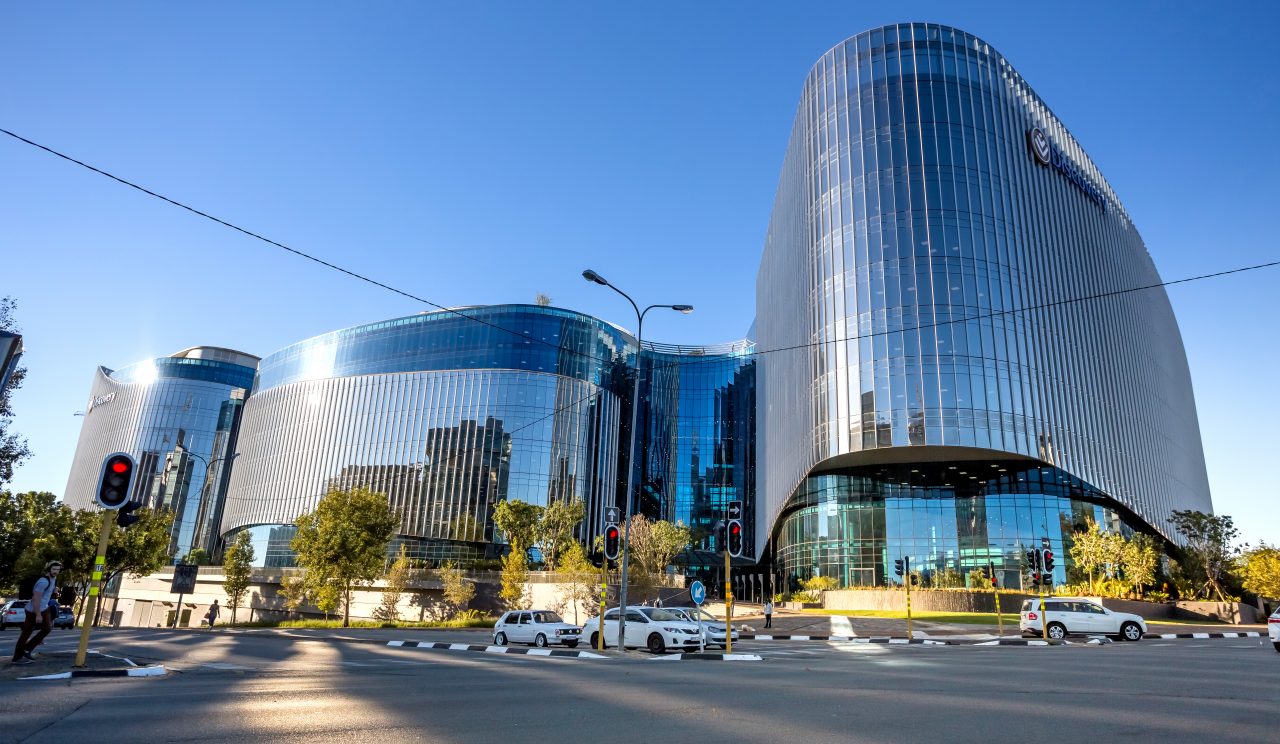Join GlobalBizzNetwork and start your international business network today.
Business in SA
Practical Tips on Doing Business in South Africa
It is not by chance that South Africa is referred to as the Rainbow Nation. The country is home to a diverse group of people with different cultural, linguistic and religious backgrounds – it is not one ethnic society. The national identity is therefore complex and difficult to generalize. The population consists of four main ethnic groups: Black African (79%), Coloured (9%), White (9%) and Asian (3%). The black african population consists of a number of different ethnic cultures as well. Each group exhibits differing religious, cultural and linguistic traits. South Africa has a total of 9 official languages, including English, Afrikaans, Zulu, Xhosa and a number of other African languages.
Identity is firmly rooted in ethnicity, and while historic rivalries between groups do exist, great maturity has been demonstrated since the move to majority rule in 1994. The traditional African concept of ‘Ubuntu’ is widely respected amongst South African people, particularly the black population. Ubuntu is an ethnic or humanist philosophy that emphasises people’s allegiances and relations with each other; “I am because you are, you are because we are”. Qualities associated with Ubuntu are mutual respect and support, interdependence, unity, collective work and responsibility.
Business community
The South African business community has historically been very conservative with a keen awareness of hierarchy and an accumulation of power at top-management level. Change is slowly introduced, partly by the large multinational companies that invested in the country post 1994.In line with this conservative attitude, the business community is generally risk averse as indicated by the importance of contracts. These are very detailed and verbal agreements are rarely used.
The one factor which is important across all cultures is personal relationship. A good personal relationship will provide a solid foundation for further cooperation and will make doing business in South Africa easier. This is especially true within Government. Third-party introductions are therefore useful.
It should be noted that there are distinct differences in business culture when comparing the different institutional relationships. Business-to-the-Public services can vary in experience, but the Business-to-Business culture is generally very professional and of international standard.
Practical tips:
Good preparation is essential before coming to South Africa. Know about the country, its culture, economy and political climate.
- Check with the nearest South African Embassy or the Departent of Home Affairs regarding the visa you might need.
- Read about South Africa and about doing business in South Africa.
- Talk to entrepreneurs with experience in doing business in South Africa. For example entrepeneurs you will find on the website.
- Understand about cultural differences and the languages.
- Explore possible subsidy schemes from the Dutch government.
Be well advised
If you want to start up a business in South Africa, be well advised. Make use of the knowledge and services of institutes, branch organisations and government authorities. You can also find additional information on our website.
Build up relations
- Building up and maintaining good relations is pivotal for doing business in South Africa.
- Invest time and effort in building up and maintaining relations. Register with us and find a reliable partner or contact.
- Don’t focus on potential business partners only, but also on South African institutes, such as local authorities and branch organisations.
- Find a reliable local partner and make use of our database. This can speed up the preparatory work.
Know your challenges
South Africa has a lot to offer, but there are undoubtedly challenges in doing business in South Africa. Grant Thornton International’s Emerging Markets Opportunity Index 2012, ranked South Africa in the Top 15 emerging economies worldwide.
- Understand where to expect challenges: culture and languages, laws and regulations, intellectual property rights, trade barriers, logistics, personnel and bureaucracy.
- Set up a solid business plan and do market research: set clear goals and ambitions, know your niche market and know about your competitors. Without this knowledge, starting a successful business operation is most unlikely.
- Don’t have too high expectations. Understand business etiquette
- Schedule appointments far in advance and always confirm beforehand.
- Dress conservatively.
- Avoid making business arrangements during school holidays. This is specifically true for the December vacation period which generally runs from the 16th December until the 2nd January.
TIP: Trade missions are a good way to meet people that can help you when you go to South Africa but the matchmaking should be done at an earlier stage. You do not want meet and learn about your potential business partner when you first meet and vice-versa. Research needs te be done first. So invest in that and register your company today so your potential business partner can start looking at your profile and your ratings.
Business organisations
South Africa’s private sector is represented by a number of different business organisations. Despite efforts to create a united business representation, the private sector is still split along racial lines, which in practice is more a matter of a difference of views between ‘established’ or ‘emerging’ businesses. Most of these organisations aim to be a voice for business towards government as well as a support platform for their members. For foreign companies active in South Africa, these organisations can offer good networking opportunities, extensive information and once established in South Africa a forum for raising issues with government, The most established of these business organisations are:
- Business Leadership South Africa (BLSA): representing South Africa’s largest businessesB
- Business Unity South Africa (BUSA): representing different branche organisations ranging across the whole economy
- Black Business Council (BBC): representing a number of black-owned emerging businesses (no website)
- Black Management Forum (BMF): representing management professionals from the corporate and public sector as well as entrepreneurs
- South African Chamber of Commerce and Industry (SACCI): representing SME’s branche organisations across the whole economy
- Provincial or municipal Chambers of Commerce, such as the Johannesburg Chamber of Commerce and Industry (JCCI) or the Cape Town or Durban Chamber of Commerce
- National African Federated Chamber of Commerce and Industry (NAFCOC): representing mostly emerging black SME’s
- Foundation for African Business and Consumer Services (FABCOS): representing mostly micro- and informal enterprises
- Business Women’s Association (BWASA): representing mostly micro- and informal enterprise
Issues affecting business
A recent study done by the EU found that foreign businesses are generally very positive about the opportunities and the business climate in South Africa. They do note a number of issues, however, which businesses need to take into account when entering the South African market:
Skills deficit and inflexible labour laws
The legacy of Apartheid has led to a majority of the labour force being underskilled and therefore often unemployed. Highly skilled labour is available, but comes at a price due to shortages of especially technical and managerial skills. Government and the strong trade unions place great emphasis on the creation of decent jobs, which makes labour regulations well defined and implemented. At the same time this leads to a rather rigid and inflexible labour market and cumbersome procedures. Although recent government policies and the many workplace policies implemented by companies are making a positive difference, health issues such as HIV/Aids should be taken into account when doing business in South Africa.
Corruption
Although South Africa scores as one of the least corrupt countries in Africa (and 54th worldwide) in Transparency International’s Corruption Perception index, this issue still needs to be taken into account when doing business. Foreign companies note in particular the lack of transparency in government tendering procedures as a cause of concern. South Africa is signatory to various relevant international conventions and has set up a number of mechanisms to combat corruption. South African business organisations (see above) are also active in addressing corruption. BUSA for instance has published several guides on corruption and how to deal with it.
It is important to note that under South African law, business people are obliged to report corruption and it is a crime not to. The main law protecting whistle-blowers against victimisation, reprisals and discrimination is called the Protected Disclosures Act, 2000. However, this act only applies to employees and not companies. The Companies Act of 2008 also has whistle-blower protection, which extends to a broader range of people including shareholders, employee representatives and suppliers. But this act is limited to corruption committed by companies, and so does not cover issues with government. Nevertheless there are several channels for reporting corruption anonymously or subject to guaranteed confidentiality which are very helpfully listed by the South African NGO Corruption Watch: click here.
Government decision-making processes
Companies note that government decisions (e.g. on land leases, permits, certification of products, etc) often take long, which may affect investment decisions or marketing strategies. Policies and tender procedures are also not always consistently executed. Furthermore long delays in payment by parts of government may cause difficulties in particular for SME’s. Government is aware of these issues and has indicated it’s commitment to stick to a 30 day payment deadline, especially to SME’s.
Service delivery
The often inconsistent and increasingly expensive delivery of electricity, water and interconnectivity is an issue faced by larger and smaller compan ies in South Africa alike. Electricity prices are expected to continue their upward trend over the coming years, while water is becoming more scarse (even though the quality is steadily improving). Interconnectivity is expected to improve in the coming years with the arrival of new intercontinental connections.
Crime
Although contact crime rates, such as murder and rape, have been steadily decreasing over the past years, violent crime remains a reality in South Africa. Businesses must take this into account, both in terms of safety consciousness while on business trips and in investing in safety measures when setting up a business in South Africa.
Good guide for investors
A good guide for investors about the dynamics and principlas involved in the South African business environment is the Investor’s Handbook publication. investor_handbook South Africa
The following issues are inter aliacovered in this publication:
- General information about South Africa
- Broad economic overview
- Government policies and regulatory framework
- Directory of Incentive Programmes
- Starting a business in South Africa
- Sources of finance for the foreign investor
- Policies affecting doing business in South Africa
- Residing and Working in South Africa
- South Africa’s Bilateral and Multilateral Trade Agreements
- Useful Contact Details
- Indicative Costs and practical aspects of doing business and living in South Africa










